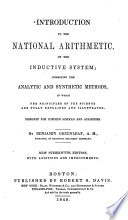 | Benjamin Greenleaf - Arithmetic - 1849 - 336 pages
...the commontdiv- isor of 8, 16, 24, 48, 64, 96, 108, and 144 ? THE GREATEST COMMON DIVISOR. ART. 133. The greatest common divisor of two or more numbers is the greatest number that will divide each of them without a remainder. ART. 134* To find the greatest common divisor... | |
 | George Roberts Perkins - Arithmetic - 1849 - 346 pages
...denominator by the same number does not alter the value of the fraction. GREATEST COMMON DIVISOR. 3<$. The greatest common divisor of two or more numbers, is the greatest number which will divide them without any remainder. Before proceeding to find the greatest common... | |
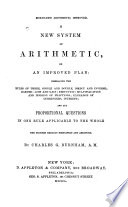 | Charles Guilford Burnham - 1850 - 350 pages
...is a number which will divide each of them without a remainder. 4 is the common measure of Jf . 7. The Greatest Common Divisor of two or more numbers, is the greatest number which will divide those numbers without a remainder. Thus, 12 is the greatest common measure... | |
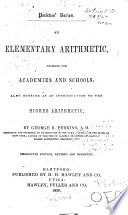 | George Roberts Perkins - Arithmetic - 1850 - 364 pages
...denominator by the same number does not alter the value of the fraction. GREATEST COMMON DIVISOR. 33. The greatest common divisor of two or more numbers, is the greatest number which will divide them without any remainder. Before proceeding to find the greatest common... | |
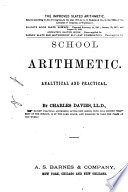 | Charles Davies - 1852 - 344 pages
...number which is divisible by 3. 7. 10 divides any number ending in 0. GREATEST COMMON DIVISOR. 130. The greatest common divisor of two or more numbers, is the greatest number which will divide each of them, separately, without a remainder. Thus, 6 is the greatest common... | |
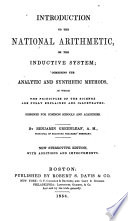 | Benjamin Greenleaf - 1854 - 342 pages
...common divisor of 8, 16, 24, 48, 64, 96, 128, and 144 ? Ans. 4. THE GREATEST COMMON DIVISOR. ART. 133. The greatest common divisor of two or more numbers is the greatest number that will divide each of them without a remainder. ART. 134. To find the greatest common divisor... | |
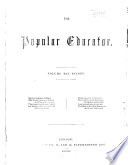 | 1856 - 418 pages
...which will divide each of them without a remainder. Thus 2 is a common divisor of 6, 8, 12, 16, 18, &c. The greatest common divisor of two or more numbers, is the greatest number which will divide them without a remainder. Thus б is the greatest common divisor of 12, 18,... | |
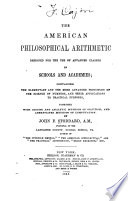 | John Fair Stoddard - Arithmetic - 1856 - 312 pages
...common divisors of 60, 120, and 180. GREATEST COMMON MEASCRE. ART. 89. The GREATEST COMMON mensu.rt, or the GREATEST common divisor of two or more numbers, is the greatest number that is contained in each of them a whole number of times without a remainder. Thus, 7 is the... | |
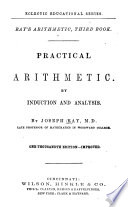 | Joseph Ray - Arithmetic - 1857 - 348 pages
...numbers, is a number that will divide each without a remainder ; thus, 2 is a common divisor of 12 and 18. The greatest common divisor of two or more numbers, is the greatest number that will divide each withe-it a remainder ; thus, 6 is the greatest common divisor of 12 and... | |
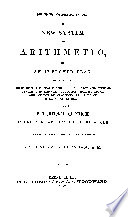 | Charles Guilford Burnham - Arithmetic - 1857 - 328 pages
...is a number which will divide each of them without a remainder. 4 is tjie common measure of J|. I. The Greatest Common Divisor of two or more numbers, is the greatest number which will divide those numbers without a remainder. Thus, 12 is the greatest common measure... | |
| |